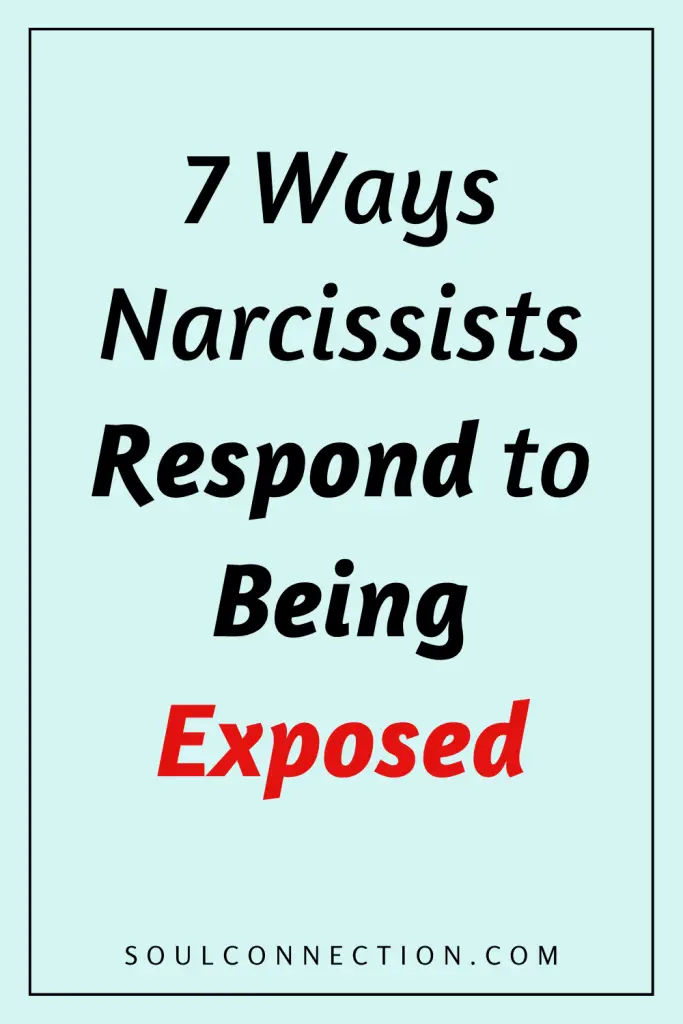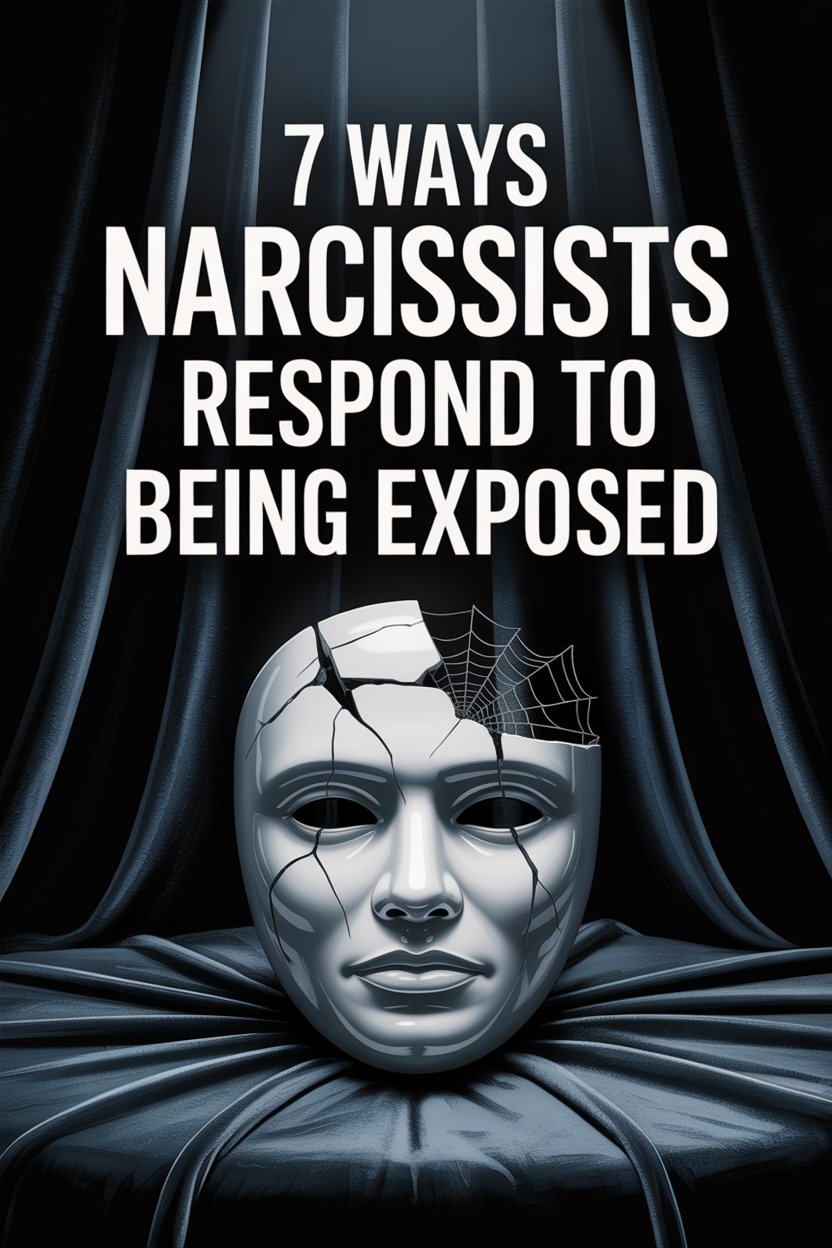It starts with a comment, maybe an inconvenient truth, or even that famous raised eyebrow across the dinner table.
Then—like clockwork—the narcissist in your life is suddenly spinning, ducking, weaving, and throwing metaphorical crockery just to avoid being caught red-handed.
If you’ve ever called out a narcissist, you already know: the show that follows deserves its own Emmy.
Here’s what actually happens when the mask slips and a narcissist gets exposed.
1. Denial That Would Make a Five-Year-Old Proud
When a narcissist is busted—really, uncomfortably outed—their first instinct is often denial. Not a subtle “maybe you misunderstood,” but an Olympic-level, “That never happened, you’re imagining things,” hot-potato kind of denial.
Think of it as gaslighting on steroids. You could have the receipts, video evidence, and a signed confession from them, and you’ll still get, “I have no idea what you’re talking about.” This isn’t about logic; it’s about survival.
The narcissist’s ego simply can’t process being wrong, so their brain throws up a blockade.
Helpful tip: If you’re hoping for a satisfying Perry Mason moment where they crumble under the evidence, you might want to lower those expectations.
2. Blame-Shift Faster Than a Squirrel on Espresso
Once denial starts to fail, it’s time for Plan B: blame-shifting. In record time, the conversation turns into a magic trick where you’re suddenly the problem. Maybe you “misunderstood,” or perhaps you’re “too sensitive.”
Sometimes, the narcissist will drag up ancient history (“Remember that time you forgot my birthday in 2014?”) and try to pin everything—even their own behavior—on your supposed flaws.
They’re not looking for actual accountability; they’re looking to wriggle free. If you feel like you’ve wandered into a courtroom where you’re on trial for crimes you didn’t know existed, that’s par for the course.
Here’s the real kicker: the more logical and calm you are, the more outrageous their accusations might get. Because if they can get you riled up, it takes the spotlight off them.
3. Rage That Could Power a Small Town
Expose a narcissist and you might find yourself facing a temper tantrum that would impress a toddler in a supermarket sweets aisle. The technical term is “narcissistic rage.”
This isn’t just garden-variety anger; it’s the ego’s smoke alarm going off at full volume.
We’re talking yelling, slamming doors, dramatic exits, and sometimes even threats designed to make you back down. The goal? To intimidate or exhaust you into dropping the subject.
If you’ve ever felt like you needed to wear metaphorical armor just to have a conversation, now you know why.
Best approach: Stay as unflappable as possible. Like dealing with a storm: you can’t stop the rain, but you can get out of its way.
4. Playing the Victim—Oscar Nominee Category
Once the rage simmers down or doesn’t work, the narcissist might pivot to the role of misunderstood martyr. Suddenly, they’re the victim of your “unfair” accusation. Tears may even make an appearance if they think it’ll help.
You’ll hear about how much they’ve done for you, how hard they’ve tried, and how hurtful it is that you “don’t appreciate them.” The aim is to flip the emotional script so you’re comforting them, and the original issue gets swept under the rug.
It’s manipulative, but it can tug at the heartstrings—especially if you’re naturally empathetic. Don’t be surprised if you end up apologizing for hurting their feelings, even when you did nothing wrong.
If you notice your boundaries dissolving faster than cheap chocolate in the sun, it’s time to step back and regroup.
5. Smear Campaign—Allies Needed, Apply Within
Sometimes, when being exposed feels too dangerous or humiliating, a narcissist turns outward and starts recruiting. Suddenly, friends, family, coworkers—or anyone with a pulse—are hearing their side of the story.
Expect exaggerations, omissions, and a narrative that casts them as the long-suffering hero. You, meanwhile, are painted as unstable, vindictive, or perhaps just “going through something.”
This is the famous smear campaign. The aim isn’t just to save face—it’s to isolate you, flip the script, and make themselves feel less alone in their distress.
If you find your mutual friends backing away or getting weirdly frosty, now you know why.
Countermeasure: Stay calm, keep your own circle informed, and document important interactions if necessary. Truth has a way of resurfacing, even if it takes a bit.
6. Silent Treatment—Professional Ghost Mode
Exposure sometimes triggers a full shutdown. The narcissist might “punish” you with silence—no calls, no texts, barely a grunt if you pass them in the hallway.
It’s classic emotional withholding, designed to make you panic, scramble for their approval, and apologize just to break the ice.
At its worst, the silent treatment can stretch on for days or weeks, leaving you wondering if you’re the villain and they’re the wounded party. The more you chase, the more powerful they feel.
If you’re tempted to “fix” things, pause and ask yourself: who’s really benefiting from this dynamic?
Spoiler: It’s not you.
7. Feigned Remorse—Just Enough to Make You Doubt Yourself
When all else fails, a narcissist might offer an apology. But don’t pop the champagne just yet. Their “remorse” is often as authentic as instant mashed potatoes.
There might be tears, a vague promise to “do better,” or even a grand gesture or two. What’s missing? Any real acknowledgement of harm or concrete change.
Feigned remorse is about regaining control, not genuine repair.
If the apology comes with strings attached (“I said sorry—can we move on already?”), or you notice a pattern of rinse-and-repeat offenses, you’re looking at a performance, not a turning point.
If you’re keeping score at home, watch for apologies that center their feelings (“I feel so bad this happened”) versus the actual impact on you. One is about them; the other is about you.
Why Exposing a Narcissist Feels Like Running a Marathon on a Treadmill
No matter which of these responses you spot, the common thread is self-protection. For someone with narcissistic traits, the idea of being truly seen—warts, flaws, and all—is terrifying. The mask isn’t just for show; it’s armor.
If you’re dealing with these behaviors in your own relationship, you know how exhausting it can be. There’s a reason why people describe these dynamics as an emotional rollercoaster (and not the fun kind).
Self-care isn’t just a buzzword here—it’s essential. Whether that means therapy, support groups, or just a brutally honest chat with a trusted mate, it’s worth prioritizing your own sanity.
Boundaries aren’t about punishment; they’re about survival.
And while it’s tempting to want validation or real, honest dialogue from the narcissist in your life, don’t pin your hopes on it.
Sometimes the wisest choice is stepping out of the ring, dusting off your gloves, and remembering that you’re not obligated to tolerate emotional contortionism just to keep the peace.
Even if they never truly face the music, you don’t have to keep dancing to their tune.


